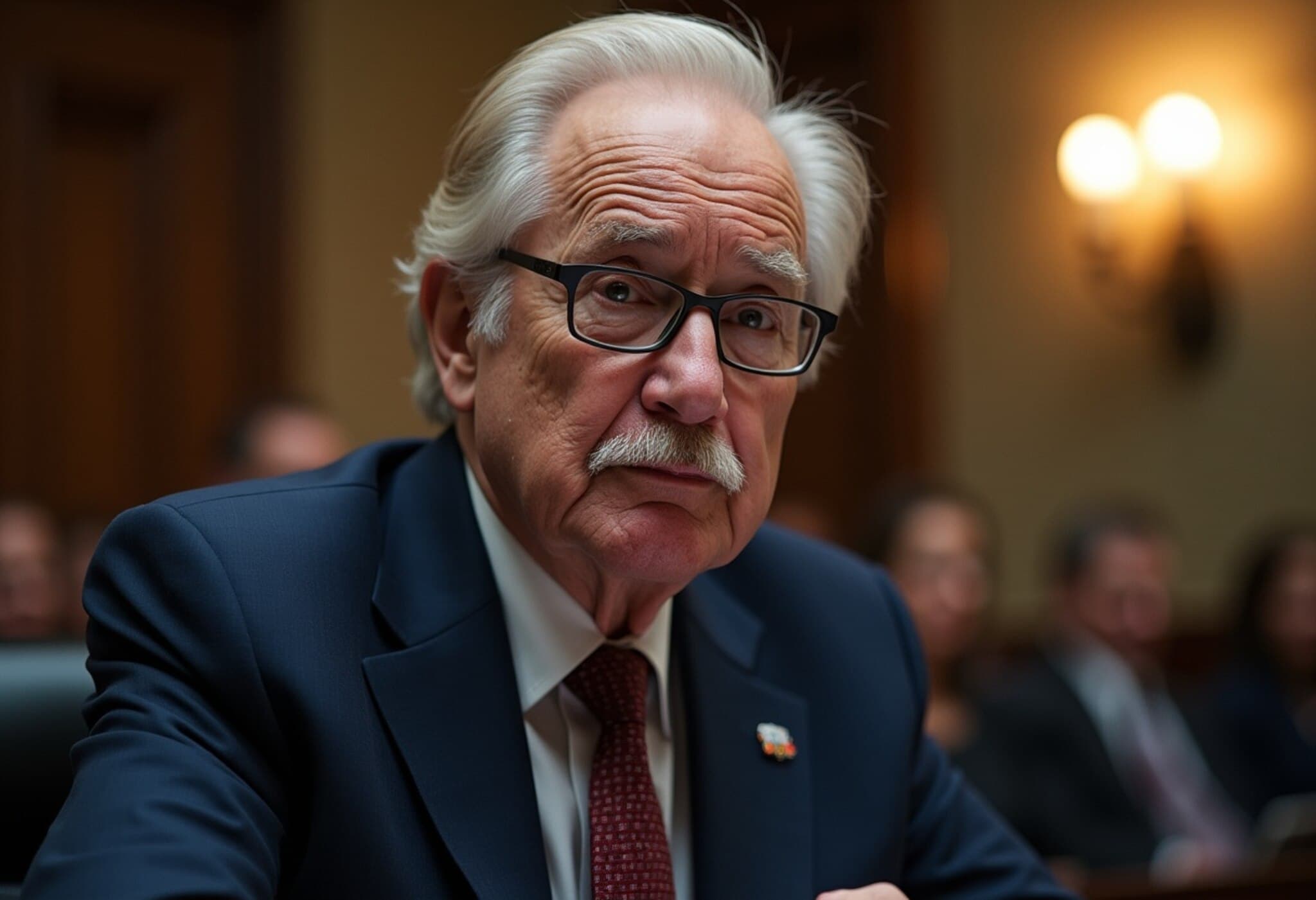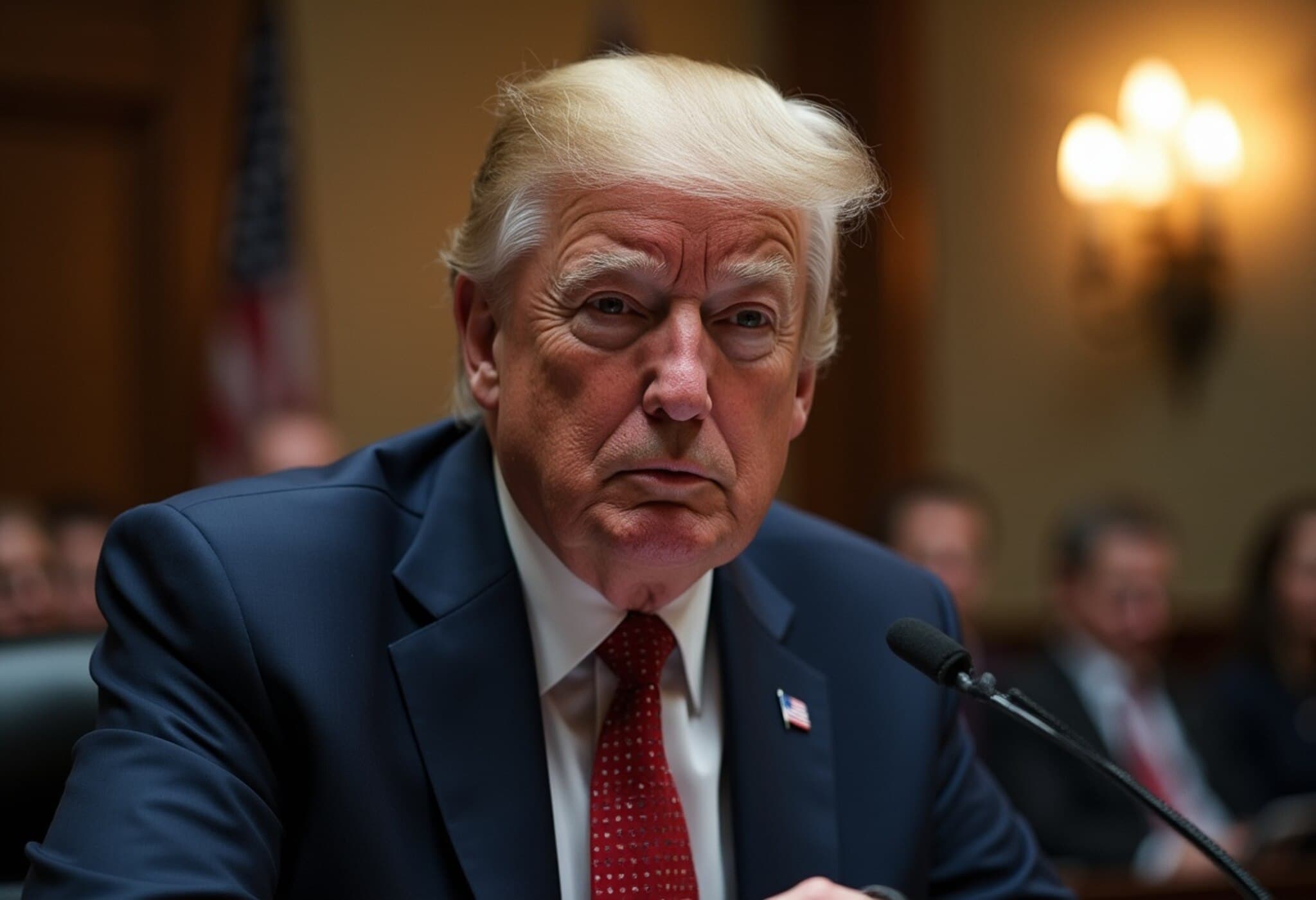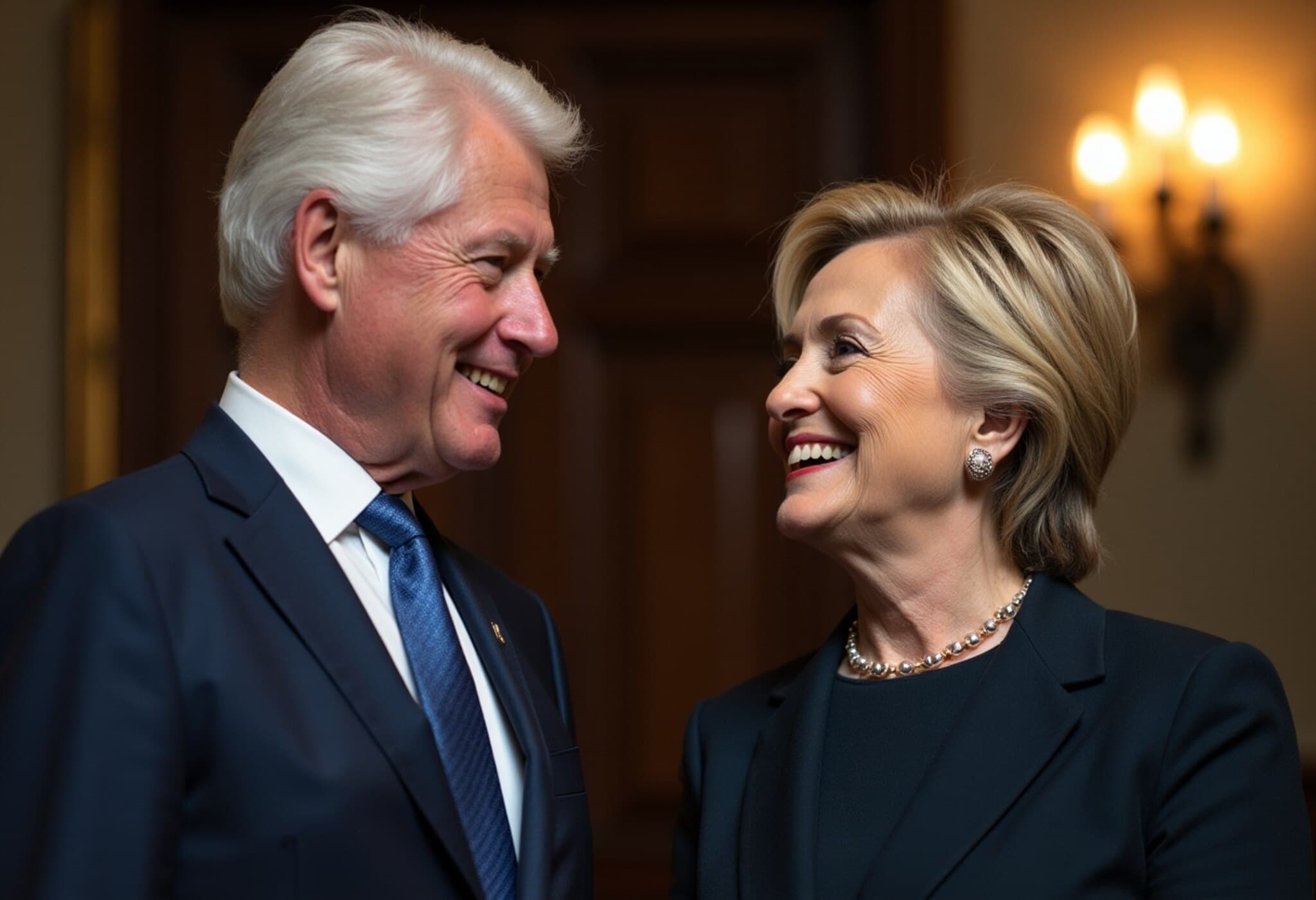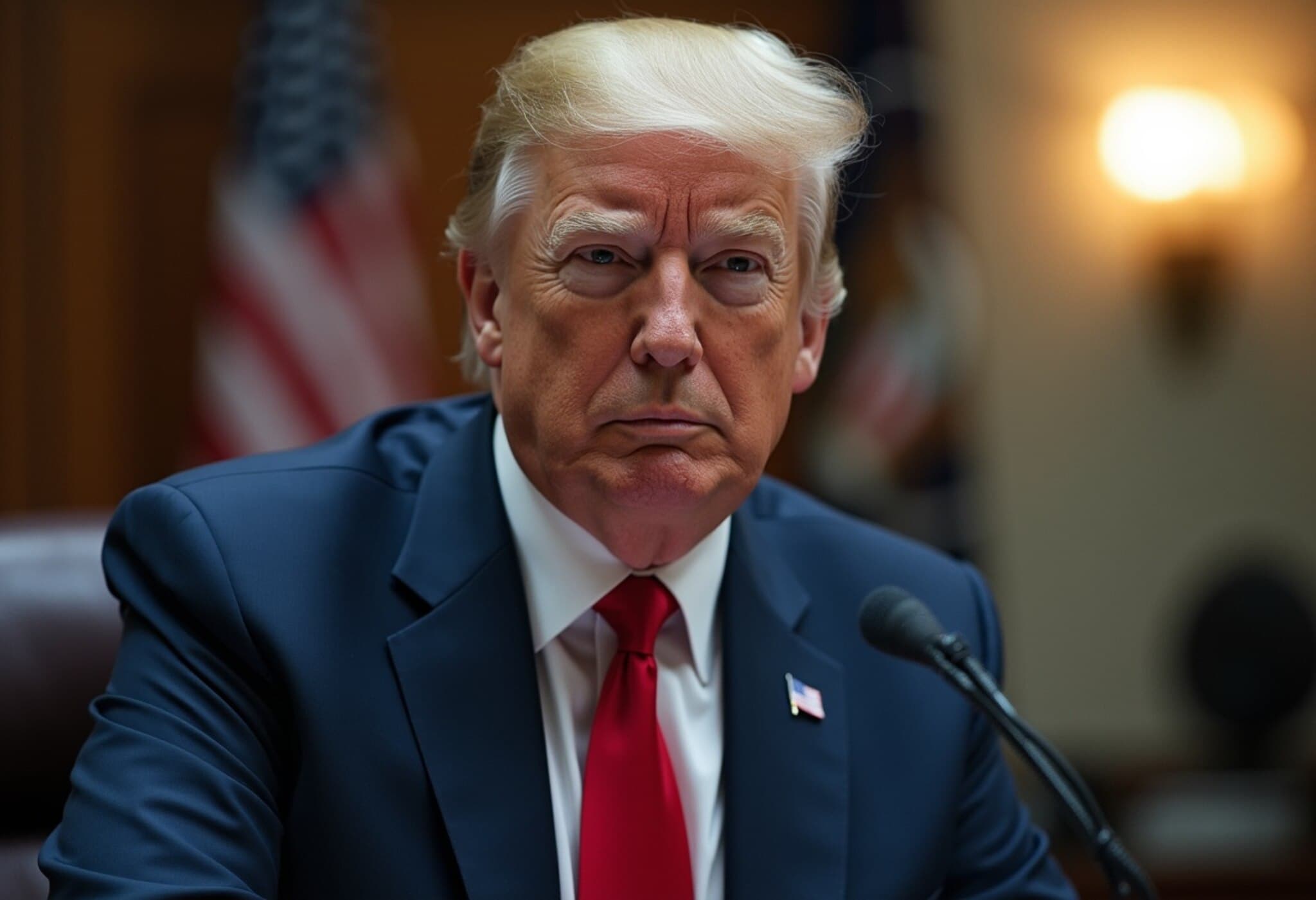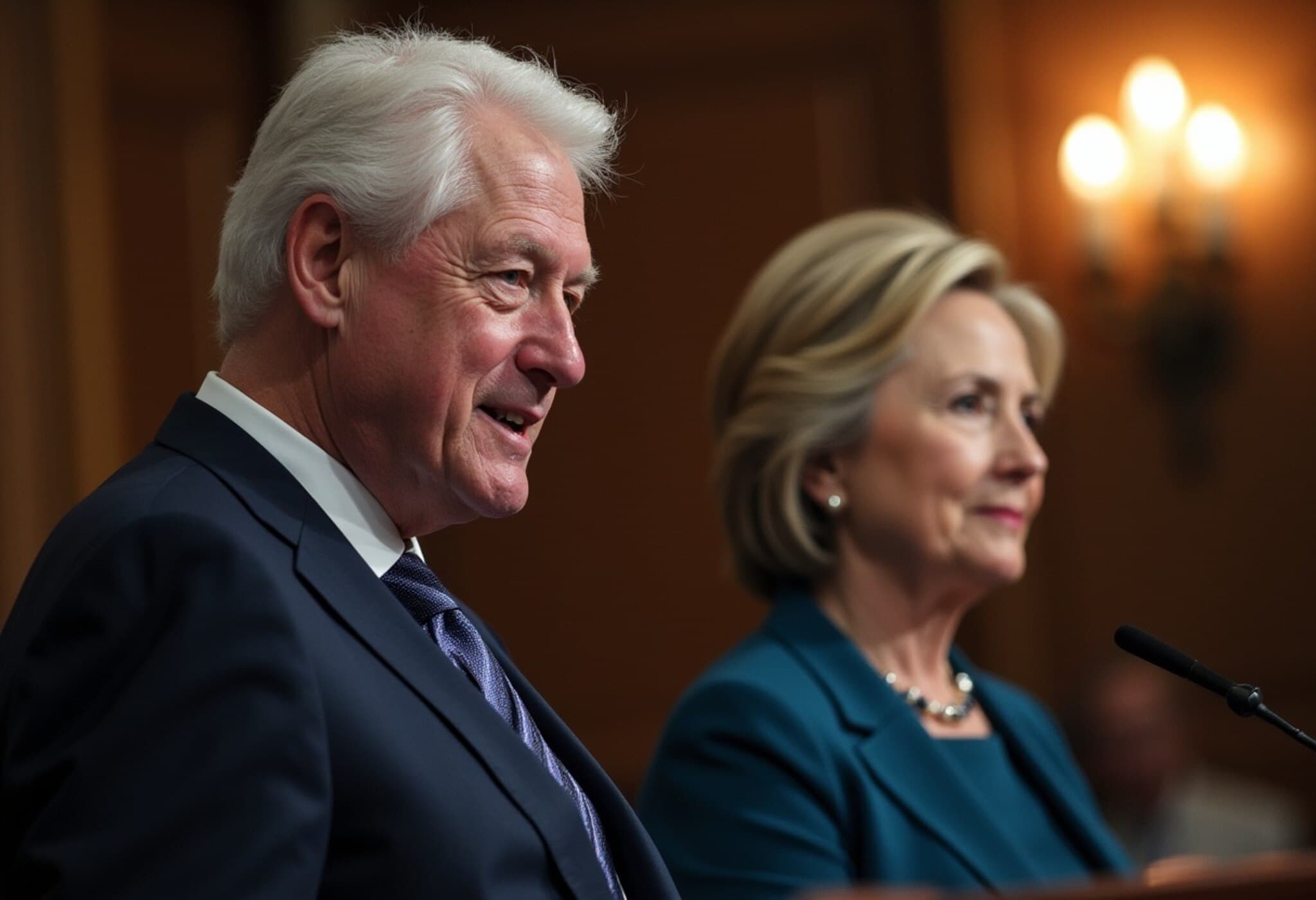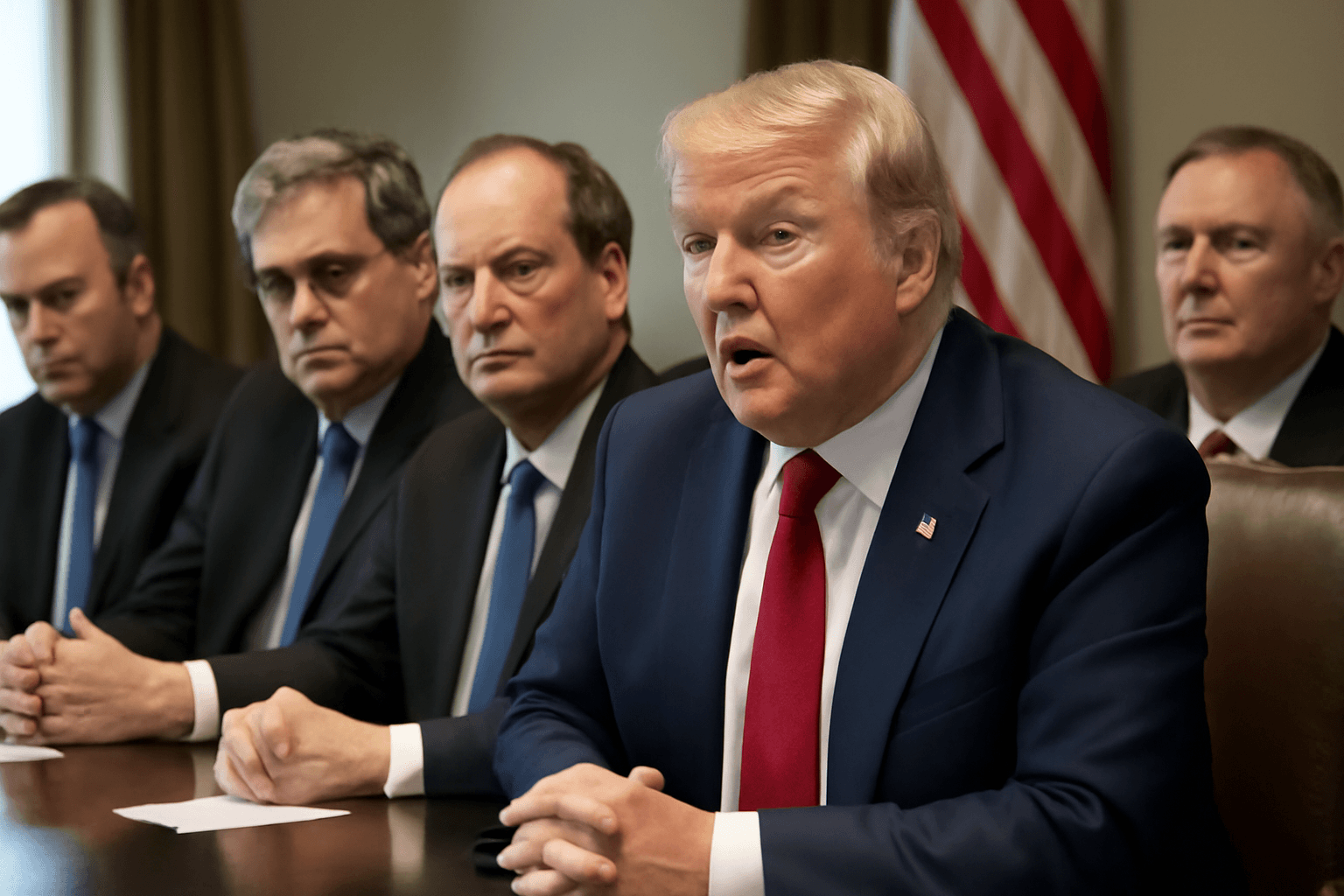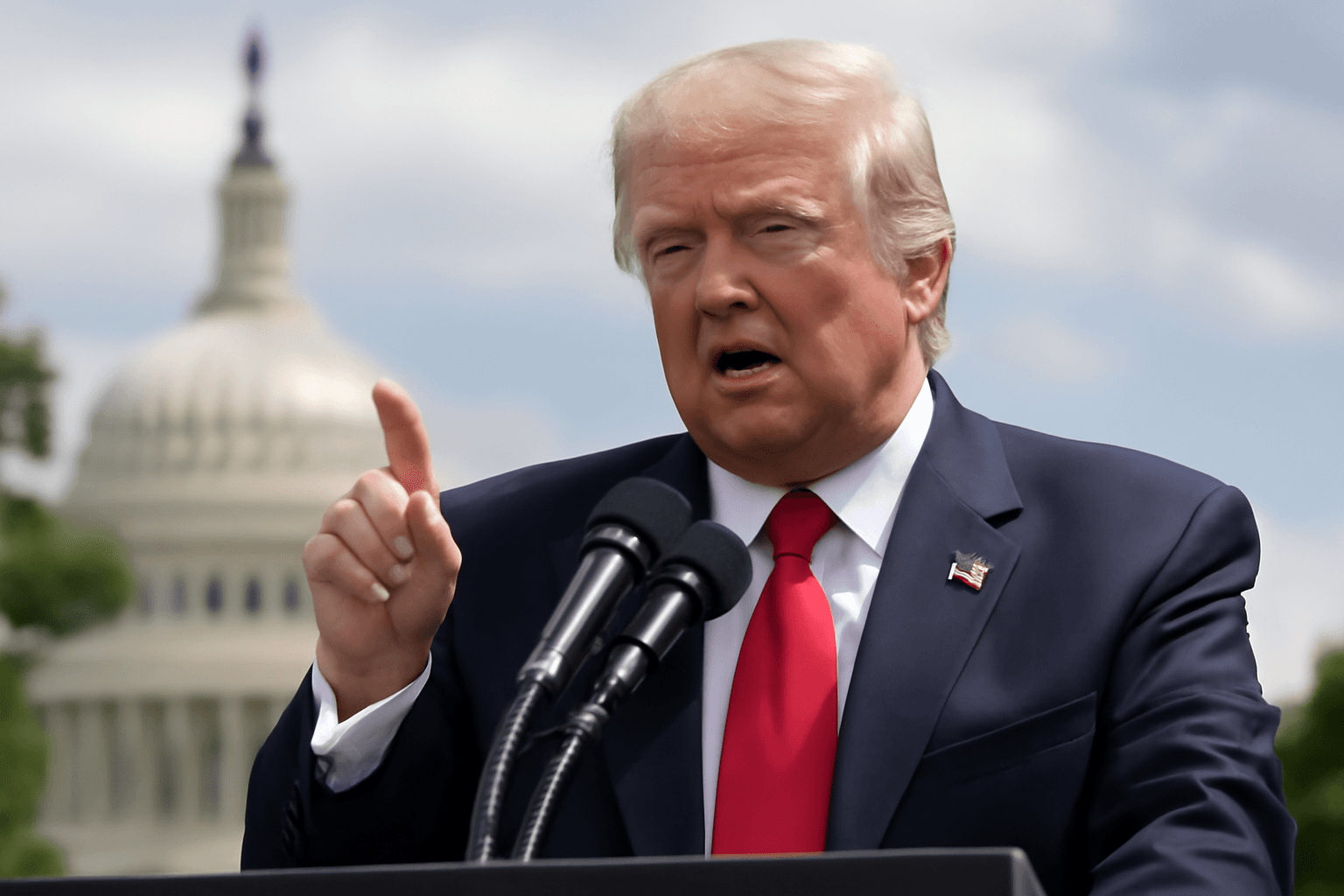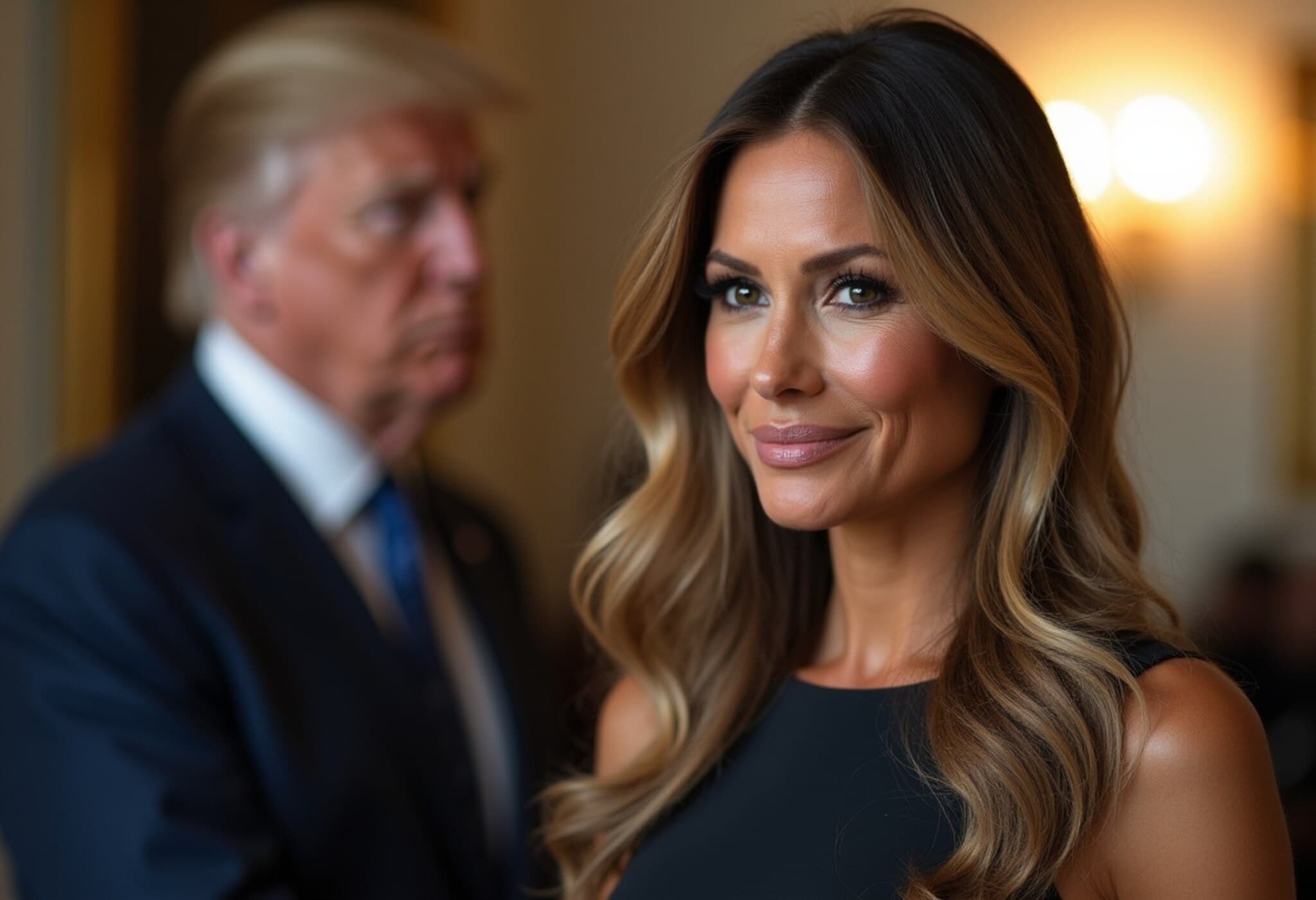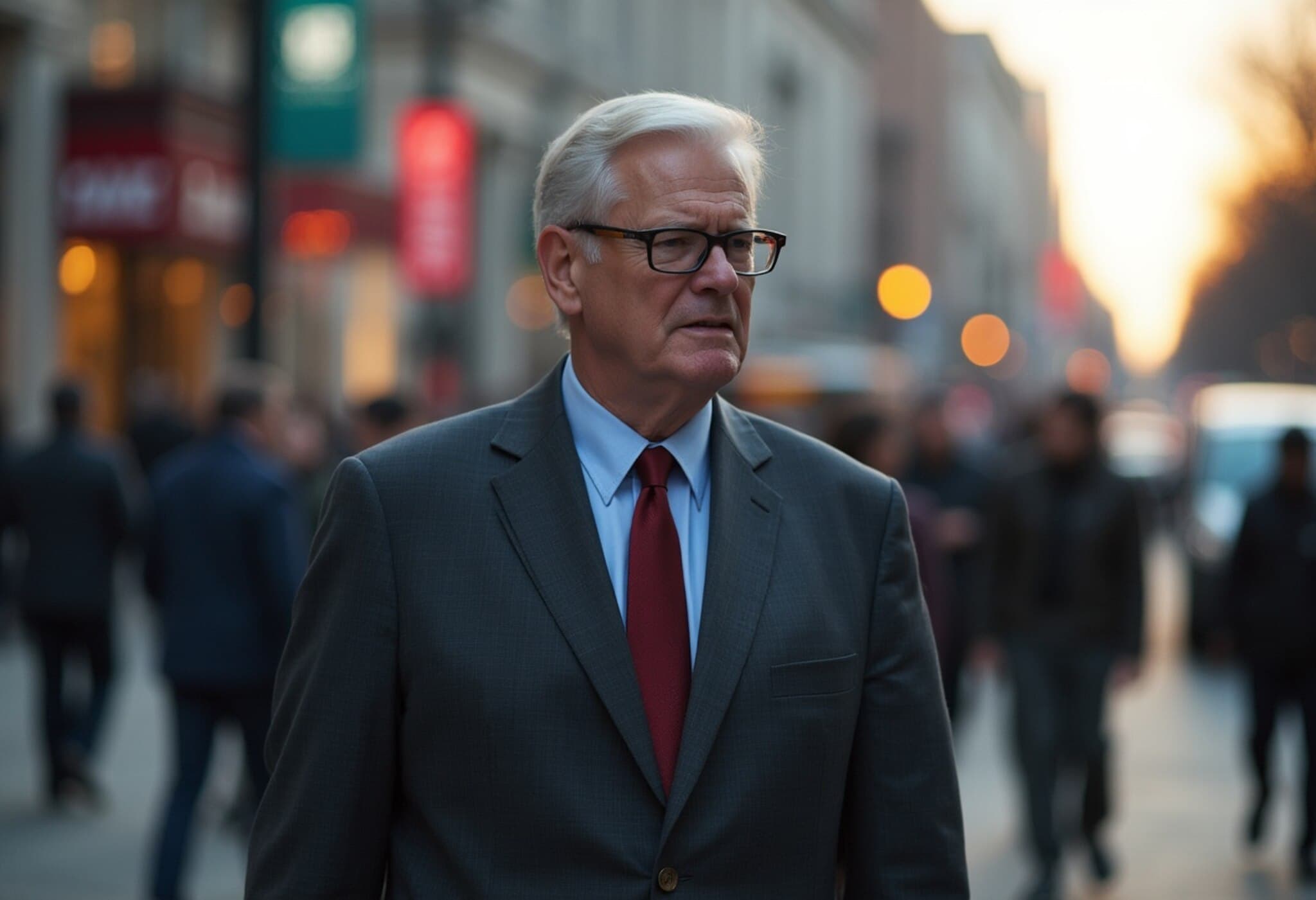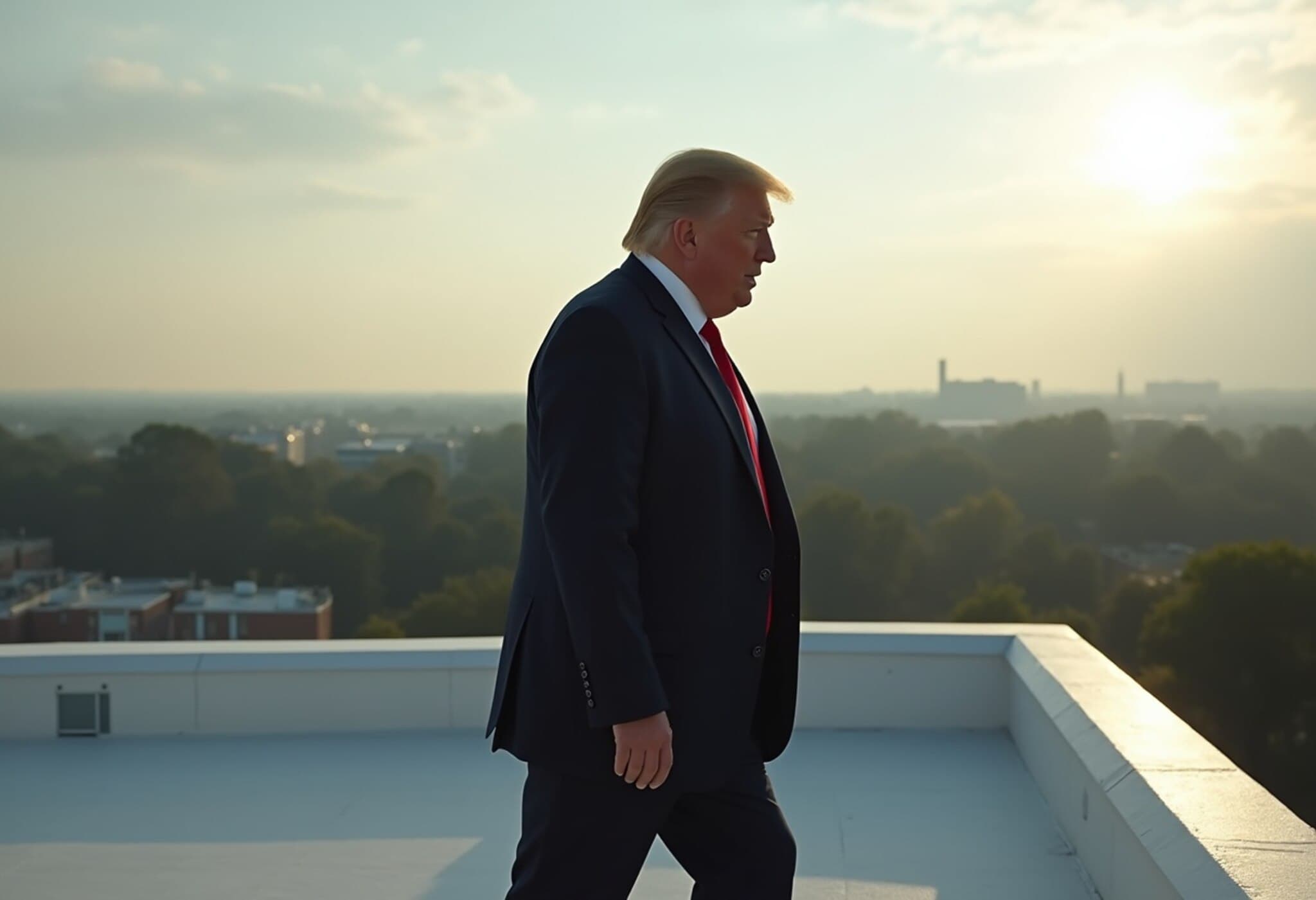US House Republicans Demand Unredacted Epstein Documents in Sweeping Subpoena
In a bold move stirring political tensions in Washington, the US House of Representatives, led by Republican lawmakers, has issued subpoenas to the Justice Department, former President Bill Clinton and former Secretary of State Hillary Clinton, as well as nearly a dozen ex-federal officials. The request centers on obtaining unredacted files related to Jeffrey Epstein’s notorious sex trafficking networks.
Heightened Scrutiny Over Epstein’s Circle
Jeffrey Epstein, the late financier whose criminal activities devastated countless victims, has long been the focus of Congressional inquiry. The House Oversight Committee, chaired by James Comer, a steadfast Trump ally, is intensifying demands for transparency amid ongoing controversy around Epstein’s connections with powerful political figures.
Comer's letter to the Attorney General explicitly calls for the "full, complete, unredacted Epstein files," including information about Ghislaine Maxwell, Epstein’s close associate now serving a 20-year prison term for facilitating sexual abuse against minors.
Clintons Drawn Into the Fray
The subpoenas notably include Bill and Hillary Clinton, figures whose past associations with Epstein have prompted public curiosity and speculation. While Bill Clinton has acknowledged some interactions with Epstein, he consistently denies knowledge of the trafficking operation.
This development could reignite political fires for both parties, as the Epstein scandal has refracted through multiple administrations and political rivalries, increasingly intertwining with Republican efforts to spotlight misconduct among Democrats.
Political Maneuvering and Legislative Impasse
The timing of the subpoenas amplifies a delicate political atmosphere. The push for releasing Epstein records has been a source of friction between House Democrats and Republicans, prompting Speaker Mike Johnson to adjourn the House early for August recess to avoid contentious votes on document disclosure. Democrats have continuously pressed for public access to Epstein-related materials, viewing the transparency as crucial to justice and accountability.
On the other hand, Republicans argue the necessity of uncovering full facts surrounding Epstein’s operations and those connected to him to protect the integrity of the investigation.
Trump’s Connection to Epstein Under Heightened Scrutiny
Former President Donald Trump, who had social ties to Epstein in the 1990s, has found himself once again under the spotlight. Trump has acknowledged knowing Epstein but reiterates denial of any involvement or awareness of his illicit activities.
Recent media coverage, including a Wall Street Journal story alleging Trump sent Epstein a "suggestive birthday letter," has fanned controversy, which Trump vociferously denies, even filing a lawsuit against the publication.
Legal Battles and Grand Jury Secrecy
The subpoena extends beyond individuals to seek extensive records, including grand jury materials, although these remain highly guarded. Maxwell’s legal team opposes unsealing these documents, citing concerns that confidential grand jury testimony — much of which is hearsay — could unfairly prejudice public understanding.
The Justice Department’s stance has been cautious, acknowledging a trove of investigative material beyond the grand jury transcripts, such as victim interviews and witness statements. This collection could yield significant insights if released.
Broader Implications and Underreported Angles
- Legal Precedent for Former Presidents: Historically, former US presidents have not been compelled to testify before Congress. The current subpoenas challenge this norm, raising constitutional and legal questions about legislative powers and executive privilege.
- Maxwell’s Imminent Testimony: Maxwell’s lawyers are negotiating immunity in exchange for deposition testimony. The outcome of these discussions could dramatically shift public understanding and may impact ongoing or future prosecutions.
- Political Weaponization of the Epstein Case: Both parties have used the Epstein scandal to score political points, often at the expense of focusing on victims’ rights and systemic changes to prevent exploitation.
Justice Department and National Security Investigation
Amid the Epstein file subpoenas, the Justice Department has initiated a separate grand jury inquiry into claims that Obama-era officials engaged in a covert effort to damage Trump’s presidency by politicizing intelligence related to Russia’s 2016 election interference. This investigation, prompted by a criminal referral from Director of National Intelligence Tulsi Gabbard, adds another complex layer to the evolving political and legal landscape.
Response from Political Figures
Obama’s office dismissed the claims as "bizarre allegations" and a "weak attempt at distraction." Such sharp rhetoric underscores the deep partisan divides engulfing Capitol Hill.
What’s Next: Critical Dates and Challenges Ahead
- August 19: Deadline set by the House Oversight Committee for the Justice Department to release Epstein-related records.
- August 11 Deposition: Potential testimony from Ghislaine Maxwell, subject to immunity negotiations and Supreme Court decisions on her appeal.
These milestones will be pivotal in shaping public discourse and could influence the political fortunes of numerous figures entwined in the Epstein saga.
Expert Commentary: Navigating Transparency and Justice
From a policy analyst’s perspective, the subpoenas mark a significant push toward accountability but also reflect the persistent challenge Congress faces in balancing transparency with ongoing legal proceedings. Releasing unredacted files risks jeopardizing investigations but withholding information feeds public distrust.
Furthermore, the involvement of high-profile political figures such as the Clintons and Trump increases the stakes, with implications not only for criminal justice but also for political legitimacy and public trust in institutions.
Editor’s Note
The latest subpoena issued by the House Oversight Committee signals a renewed effort to unravel the full scope of Jeffrey Epstein’s trafficking network and those connected to it. While political tensions flare, the central question remains: can the pursuit of justice overcome partisan divides to serve the victims? Readers are encouraged to consider the broader implications of transparency, legal boundaries, and political accountability as this story develops.

